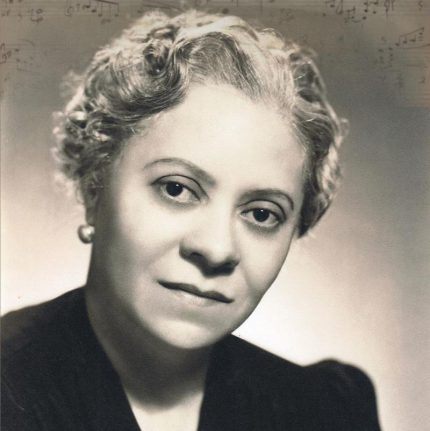Florence Price work provides a highlight with Nexus Chamber Music

Nexus Chamber Music continues its second annual Chicago residency at Guarneri Hall in the Loop this week. Wednesday night’s concert was titled “Folk Songs in Counterpoint” and, as with its opening night outing, the music making was at a supremely high level even if the thematic links between pieces were occasionally strained.
The evening opened with Jean Barrière’s Sonata No. 10 in G Major for Two Cellos, featuring Nexus co-artistic director Alexander Hersh and Paulo Competition winner Brannon Cho. Barrière was a French cellist who died at the age of 40 in 1747, and also composed extensively for his instrument. His three-movement sonata received elevated treatment from the two young cellists (though any connection with folk tradition was unclear). The opening Andante was poised and elegantly inflected, and the cello pair plumbed the mournful Adagio’s sonorous depths. A spirited closing Presto was deployed with aplomb.
A selection of four Danish folksongs arranged by the Danish String Quartet continued the proceedings. Violinist and Nexus co-artistic director Brian Hong forgivably excused himself from pronouncing the songs’ Danish names during his prefatory remarks, but as these weren’t printed in the program either, there was no way to tell what they were.
The unnamed mystery offerings were nonetheless beguiling. The Danish arrangers elaborated the affecting simplicity of their native folksongs in harmonically inventive ways and embellished them with intricate and at times virtuosic figuration. These were delivered with style by the four Nexus players: Hong and Hersh, joined by second violinist Siwoo Kim, and violist Tanner Menees.
The concert took its name from the next work on offer: Five Folksongs in Counterpoint by the African-American composer Florence Price (1887-1953).
Price was the first black woman to have her works played by major U.S. orchestras. The five folk settings of the suite heard Wednesday are truly ingenious—why are they not more widely performed, particularly in the city where she died?
The opening “Cavalry” is jazzy and subtly modal, and was highlighted by a soulful pentatonic viola solo from Menees over sul ponticello accompaniment. “Clementine” begins with a straightforward statement of the theme and segues into harmonically intricate variations, and the Nexus players’ attention to the dotted rhythms throughout gave this movement an idiomatic lilt. The opening of “Drink to Me Only With Thine Eyes” seemed to float statically, and the brief “Shortnin’ Bread” was an emphatic exclamation point.
The final movement—“Swing Low, Sweet Chariot”—was something of a fantasy on that familiar melody, and evoked Dvorak’s famed “American” Quartet, demonstrating the influence African-American folk music had on the Czech composer during his residency in New York. Price’s work is accomplished enough to stand with her widely known predecessor.
The second half of the concert was devoted to the String Quartet in A Minor for Violin, Viola, and Two Cellos, Op. 35, of Anton Arensky, which is dedicated to the memory of Tchaikovsky. Hong pointed out that the work is heavily influenced by the Russian liturgical tradition, but the absence of any notes was another lost opportunity to explicate its connection to the program title.
There were no quibbles to be had with Nexus’ performance of this unapologetically Romantic work. The pulsating ecclesiastical murmur of the opening set the dark-hued tone for the performance, with the two cellos balancing out the top-heaviness of the standard string quartet instrumentation. The quartet of Hong, Menees, Hersh, and Cho deftly navigated the opening movement’s fluctuating agitation.
The work’s central movement is a set of variations on a Tchaikovsky melody. While this tune might have folk origins, it is actually the fifth of the Russian master’s Sixteen Songs for Children, Op. 54. The variations had a melancholy, bardic air, which hypnotically drew the listener to it in Nexus’ evocative rendering. The brief, dynamic finale closed the evening with gusto. This movement contains a Russian folk song also used by Mussorgsky (in Boris Godounov) and Beethoven (in “Razumovsky” QuartetNo. 2), so the evening did end on an appropriate thematic note.
Nexus Chamber Music concludes its series at Ganz Hall 7:30 p.m. Friday night with “Nocturnal Awakenings.” The program includes Boccherini’s String Quintet Musica notturna delle strade di Madrid, Webern’s Langsamer Satz, Schnittke’s A Paganini for solo violin, and Schubert’s String Quintet in C Major. nexuschambermusic.com/
Posted in Performances


